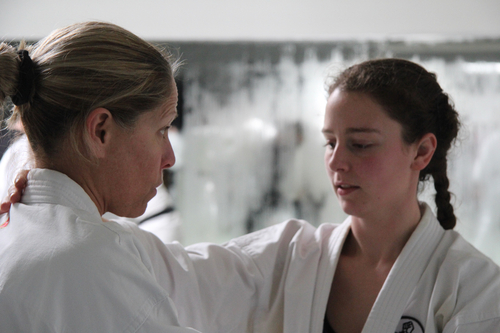Top Ten Most Asked Questions About Martial Arts Training

Are you curious about martial arts but aren’t sure where to start?
Maybe you’re wondering which style suits your goals, if it’s too late to begin, or what a typical class looks like. If so, you’re not alone. Martial arts can be both exciting and intimidating for beginners, so we’ve compiled the top 10 most asked questions about martial arts training to help guide your journey.
Whether your goal is fitness, self-defense, discipline, or competition, this article will provide clear, beginner-friendly answers to help you confidently take your first step into the dojo.
1. Which martial art should I start with?
Beginners often ask whether karate, judo, jiu-jitsu, taekwondo, aikido, MMA, or another style is right for them. The answer depends on your goals:
- Fitness & conditioning: Kickboxing, karate, and taekwondo offer high cardio and flexibility.
- Self-defense: Jiu-jitsu, MMA, and aikido focus on practical techniques for real-world situations.
- Discipline & focus: Traditional arts like karate and taekwondo emphasize mental growth alongside physical skill.
- Competition: Judo, jiu-jitsu, and MMA provide opportunities to compete locally and nationally.
A good martial arts school will offer introductory classes so you can try multiple styles before committing.
2. Am I too old (or too young) to start?
The great news: martial arts are truly for all ages. Children benefit from improved coordination, focus, and social skills, while adults gain strength, flexibility, and stress relief. There’s no “wrong age” to start. In fact, many adult beginners see rapid progress because they approach training with determination and focus.
3. Will martial arts training get me in shape?
Absolutely! Martial arts offer a full-body workout:
- Strength: Bodyweight exercises, strikes, and throws build muscles naturally.
- Cardio: Continuous movement, sparring, and drills elevate heart rate.
- Flexibility & balance: Stretching routines and technique practice improve mobility.
Compared to traditional gym workouts, martial arts combine skill development with fitness, keeping training both engaging and rewarding.
4. How long does it take to earn a black belt?
Time to black belt varies widely by martial art and school, but typically ranges from 3 to 10 years. Progression is based on consistent practice, mastering techniques, demonstrating knowledge, and personal growth. Remember: earning a black belt is more about the journey than the destination.
5. Is martial arts training safe?
Safety is a top priority at reputable schools. Instructors supervise closely, teach proper techniques, and provide protective gear when necessary. While minor bruises or muscle soreness are common, serious injuries are rare when training under professional guidance.
6. Can martial arts really help with self-defense?
Yes! Martial arts teach both physical techniques and a self-defense mindset. You’ll learn how to:
- Stay aware of your surroundings
- Defend yourself in realistic scenarios
- Respond confidently and decisively
Practical application, coupled with mental preparation, is key to self-defense effectiveness.
7. How much does it cost?
Costs vary depending on the school, program, and equipment needs. Typical expenses include tuition, uniforms, testing fees, and optional gear. Many families and adults find the investment worthwhile for the physical, mental, and personal growth benefits gained from training.
8. How often should I train to see progress?
Consistency is key. Beginners often start with 2–3 classes per week, gradually increasing as comfort and skill improve. Balanced training allows for steady progress while minimizing risk of burnout or injury.
9. What values or life skills will I gain?
Martial arts teach more than physical techniques—they instill confidence, discipline, respect, focus, and resilience. Students often notice these lessons carrying over into school, work, and personal life, helping them tackle challenges with a stronger mindset.
10. What should I expect in my first class?
Expect a welcoming, structured environment. You’ll learn:
- How classes flow and what to wear
- Basic techniques and warm-ups
- Proper etiquette in the dojo
Instructors guide beginners gently, encouraging growth without pushing past comfort zones. It’s a supportive space designed for learning and confidence-building.
Ready to Begin Your Martial Arts Journey in Ann Arbor?
If you’re inspired to start your training, JMAC Martial Arts in Ann Arbor is here to help. Our experienced instructors provide beginner-friendly programs that focus on fitness, self-defense, and personal growth. Don’t wait—reach out today and take the first step toward a stronger, more confident you!
